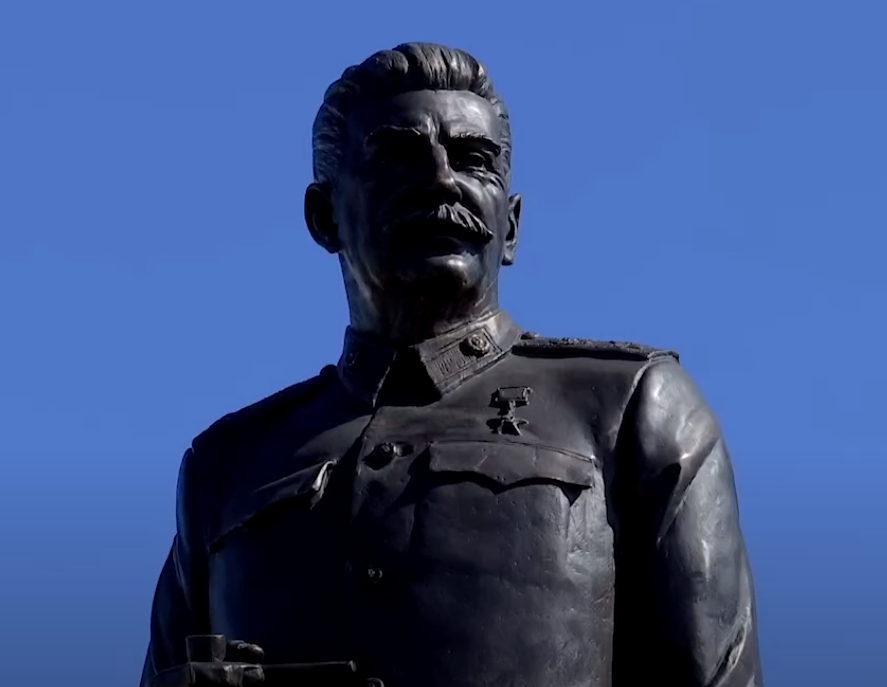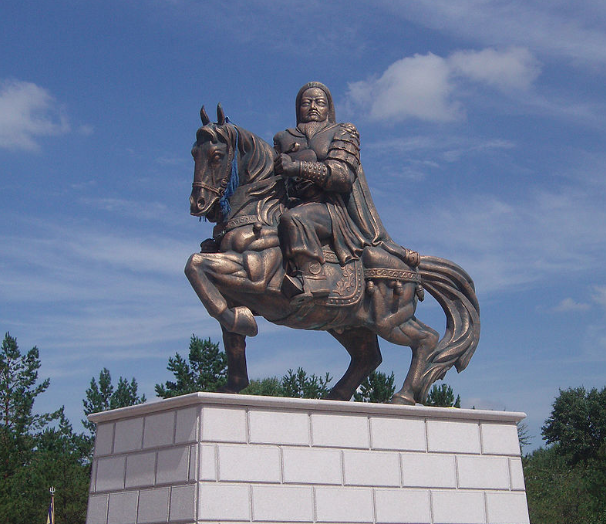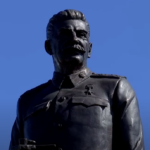It was an event waiting to happen. On August 15, in the small town of Velikiye Luki, Russia (fewer than 100.000 inhabitants; north-west of Smolensk, south-east of Pskov, east of the state border between Latvia and Lithuania, on the latitude running close to Copenhagen, and the longitude running through Kiev) there took place a ceremony of unveiling a huge monument to Joseph Stalin. No, the event was not state-sponsored. It was a grass-roots initiative. A small event. One is tempted to disregard such events. Yet, the event speaks volumes. After years of denigrating Stalin, an increasing number of common Russians, not necessarily former communists or members of left-leaning parties or other leftist political organizations (if you will watch the footage of the event in YouTube, you will also spot representatives of the orthodox clergy i.e. individuals whose priestly predecessors had a hard time living under Comrade Stalin) are having second thoughts about Stalin and that period of the history of Russia in particular and the Soviet Union in general. What is remarkable, it is the young people across Russia who, despite being propagandized to believe in the exact opposite, are beginning to positively evaluate the role of Joseph Stalin. Why is that so?
First, the propaganda that was launched and carried out for three decades rode over Joseph Stalin and his followers, supporters or sympathizers roughshod. It resonated positively during the initial years after the collapse of the Soviet Union and the existence of the Russian federation, but – as we all know – enough is enough. If you only find fault with a personage, you raise suspicions regarding the veracity of your evaluation. Even least intellectually capable people begin to challenge the narrative that paints everything black.
Second, the present-day position of Russia and that of the Soviet Union, especially under Joseph Stalin, speak for themselves. When Joseph Stalin held the reigns of power, no one in the West dared to drag Russia or the Soviet Union through the mire. The opposite was true. Though the socialist or communist (take your pick) Soviet Union was an ideological opponent – not to say enemy – of the capitalist West, it was partly feared, partly admired, while the Soviet Union’s leader was for a time referred to by a pet name of Uncle Joe.

Young Russians may not be knowledgeable about much, but anyone can connect the dots made by crude facts. A look at the map tells a lot: the borders of the Soviet Union and those of Russia; the sphere of the political influence of the Soviet Union and that of Russia; the achievements of the Soviet Union – think of the conquest of space, the successful rivalry with the United States in military matters, and many other things – and those of Russia.
What else? The Soviet Union of especially the first three or four decades of its existence was perceived as an ungodly political entity, a horror of horrors, where religion was suppressed, where personal liberties were mocked and where the individual was a cog in the big machinery of the collective. Private property of means of production was constitutionally forbidden. People living in the Soviet Union and later in the so-called communist countries that became the Soviet Union’s satellites envied people in the Western countries their freedom of speech, of travel, of association and of religious faith. They envied them their affluence and economic freedom of doing whatever business they felt like doing.
Decades have passed and the masks of the Western democracies have been dropped. What do the ex-Soviet now Russian or Belorussian people can see in the same(?) West? Moral decay (end of the traditional family, self-pride of sexual perverts in the streets), racial riots, ethnic replacement, pervasive presence of censorship in the media, dead Christian churches and the rising cult of satanism, cancel culture and the veneration – not to say worship – of the planet earth along with its climate. These are not the achievements of the Western world that people in the east were once so envious of: these are the things that are to them repugnant, repellent, upsetting or outrageous, as the case may be. The Soviet people did not go the churches and yet they lived their lives in line with the Christian morality: divorce was rare, homosexuals were unheard of, while the family was stable with the traditional role models for the two (no myriads of) sexes. There were no racial riots in the Soviet Union (recall that the Union comprised Asian republics that had been once conquered by tsarist Russia, the fact that might have been exploited for settling the bills and demanding compensation!). There was no planet worship but rather people – to quote loosely from the Bible – subdued the earth and tried to have dominion over the fish of the sea and over the birds of the heavens and over every living thing that moved on the earth. There was no Greta Thunberg, an insolent teenage girl, preaching to docile ministers and even more docile managers; there was no carbon tax! Rather, people wanted to attain big things: fly in the space, build a dam, win gold at the Olympics, compose a musical or literary work of art.
Yes, during the reign of Joseph Stalin hundreds of thousands if not millions of people were brutally killed or imprisoned or had their careers broken. Yet, history shows that consecutive generations tend to disregard the hardships and only appreciate the achievements. Think of the many people who are fascinated with Napoleon Bonaparte: they do not give two hoots about the suffering of the millions of people that resulted from the many wars that this emperor waged. Think about Genghis Khan: he is Mongolia’s national hero honoured by a huge equestrian statue and a mausoleum. Does anybody care about the hundreds of thousands lives that his conquests ruined? To present-day Mongolians it is only important that also they once had a leader that the whole world feared.
If you decide to watch the footage of the ceremony of the unveiling of the monument to Joseph Stalin in Velikiye Luki, you might notice some posters with the portrait of the Soviet leader and legend that reads: Stalin didn’t die, he dissolved into the future. What can the West offer as a counterbalance? Cancel culture? The destruction of the monuments commemorating its past?

Ghengis Khan




